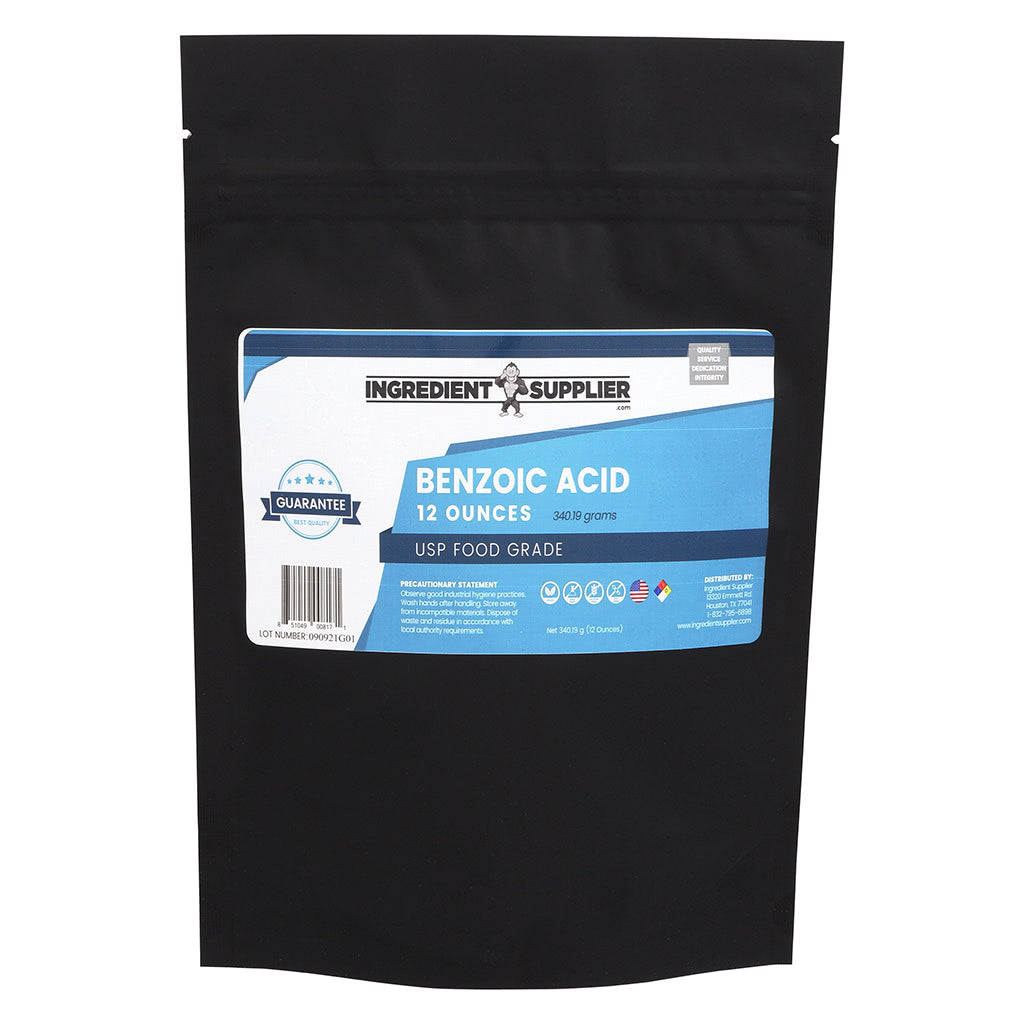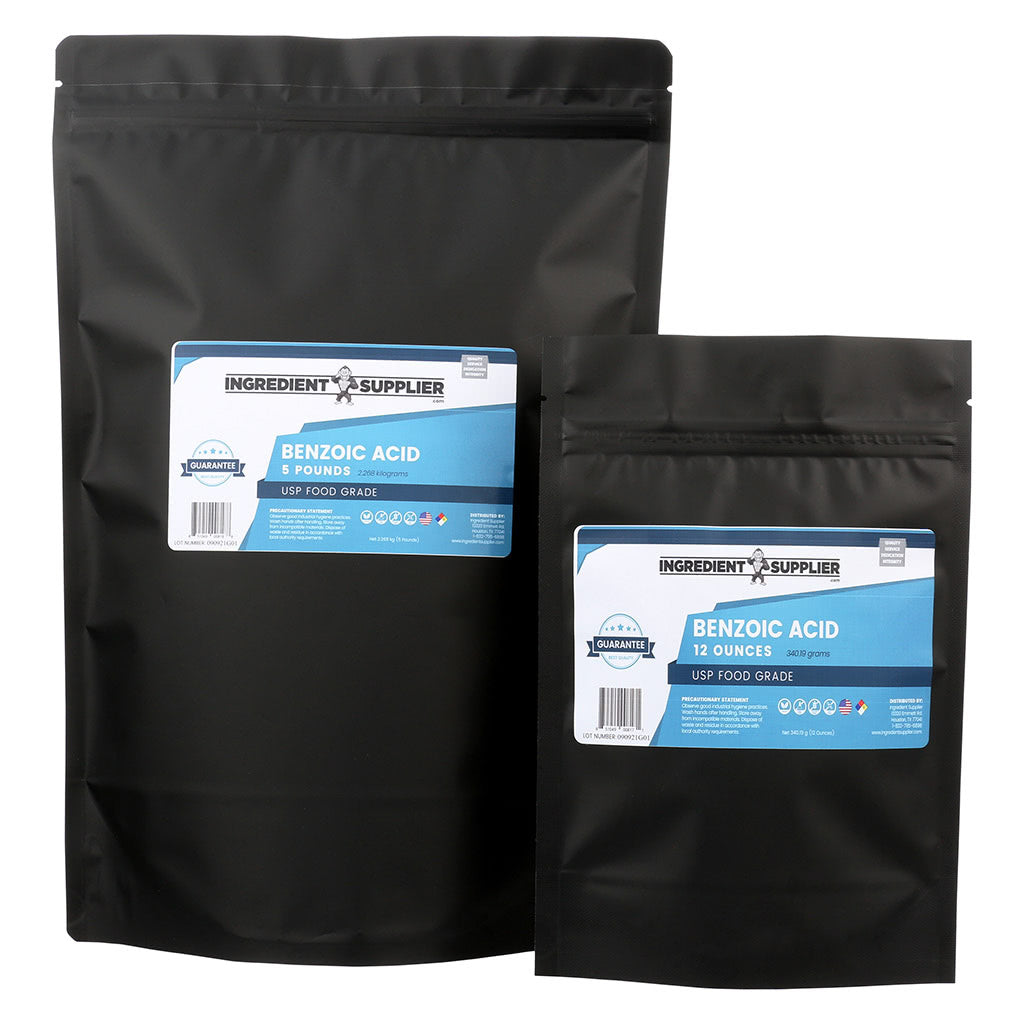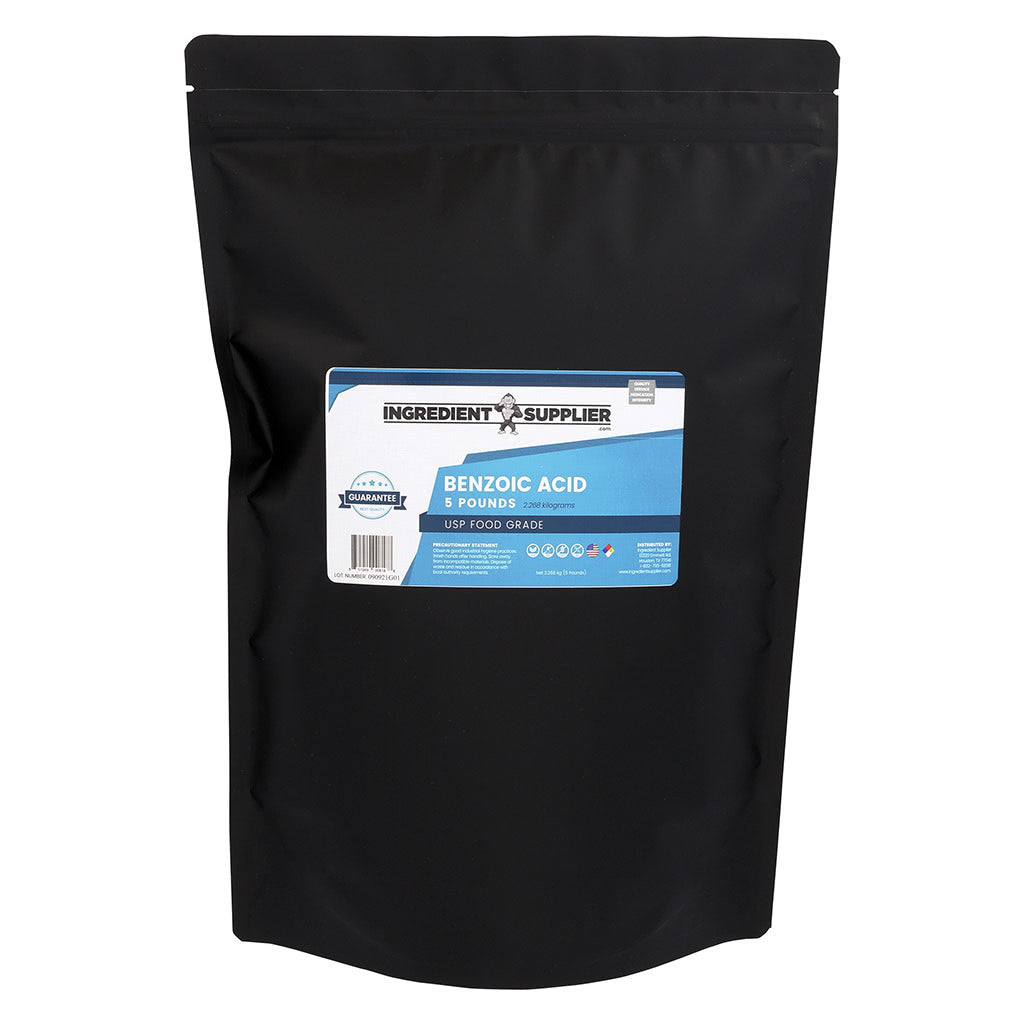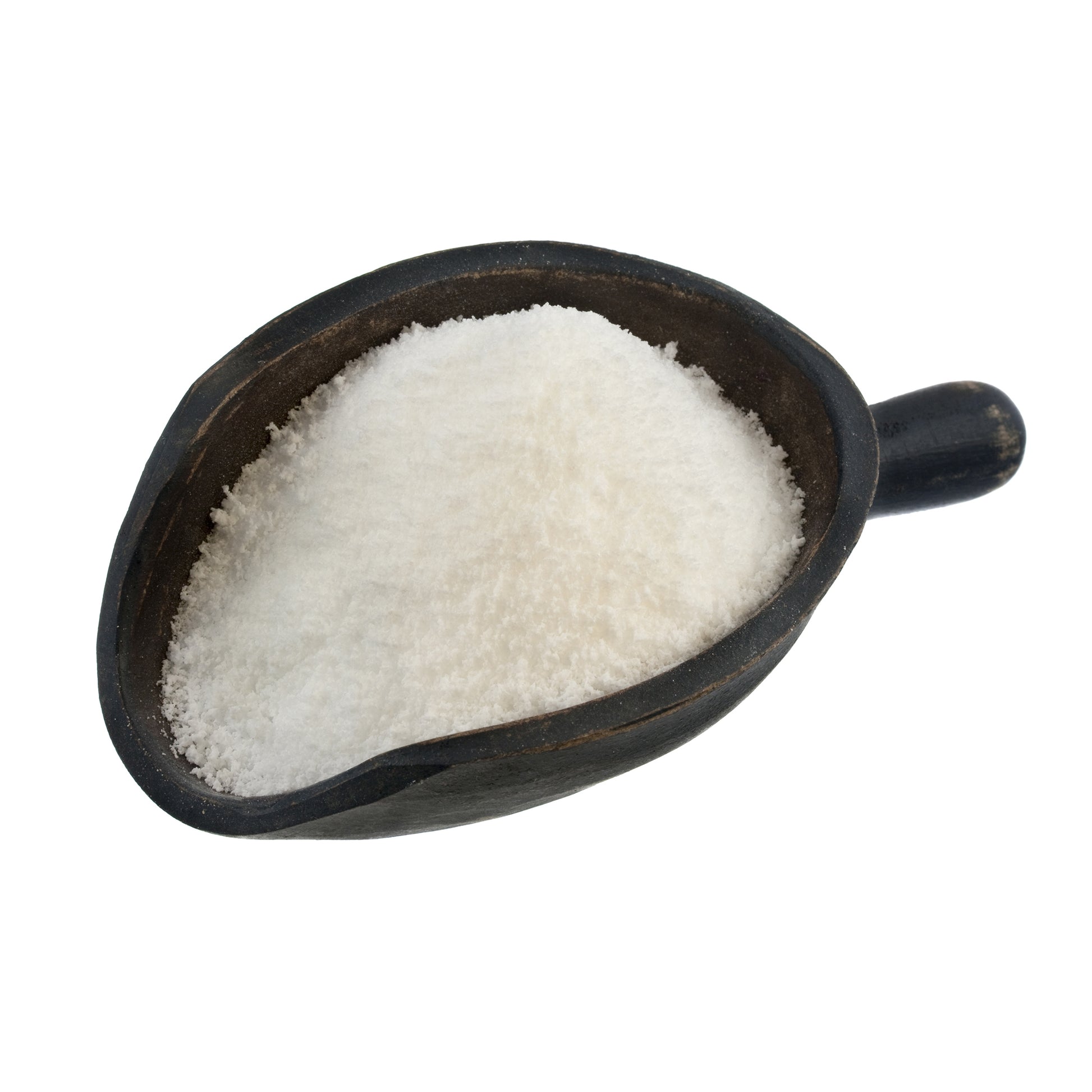Ingredient Supplier
Couldn't load pickup availability
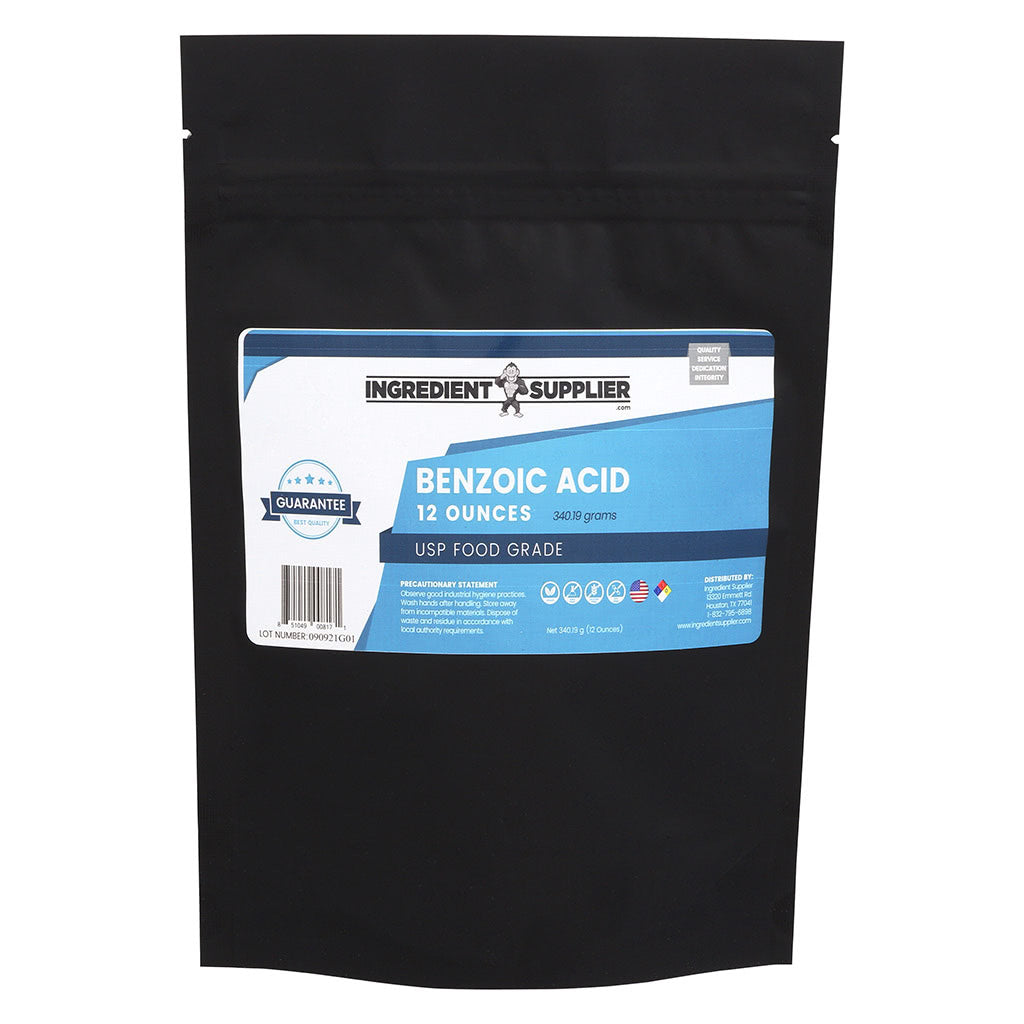
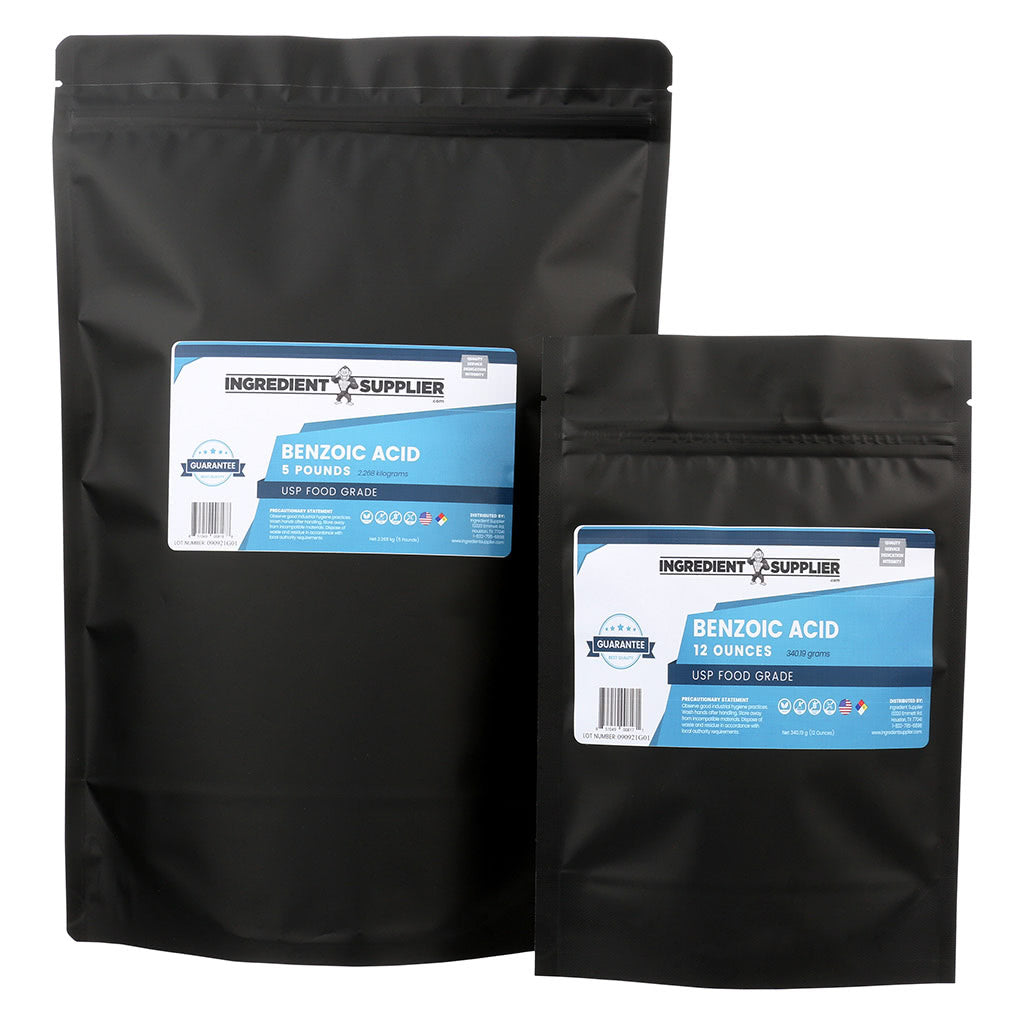
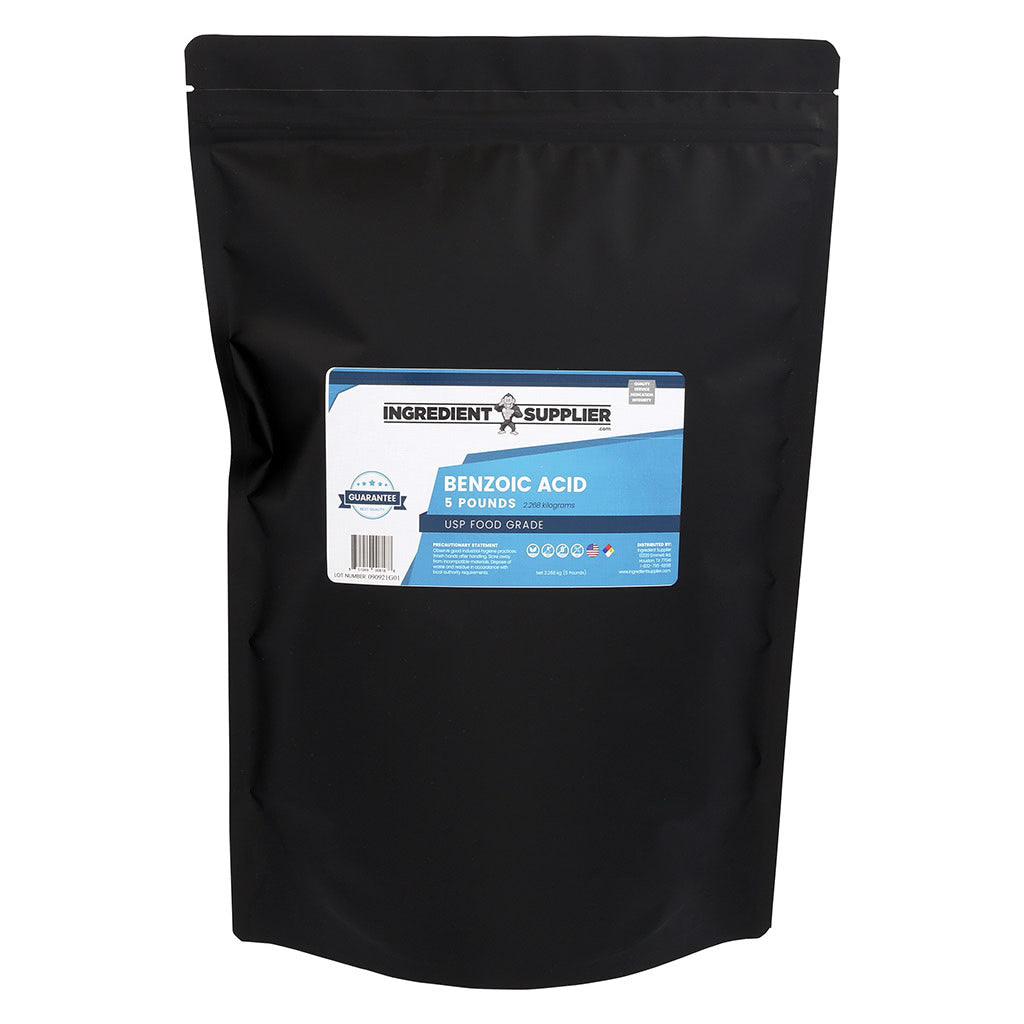
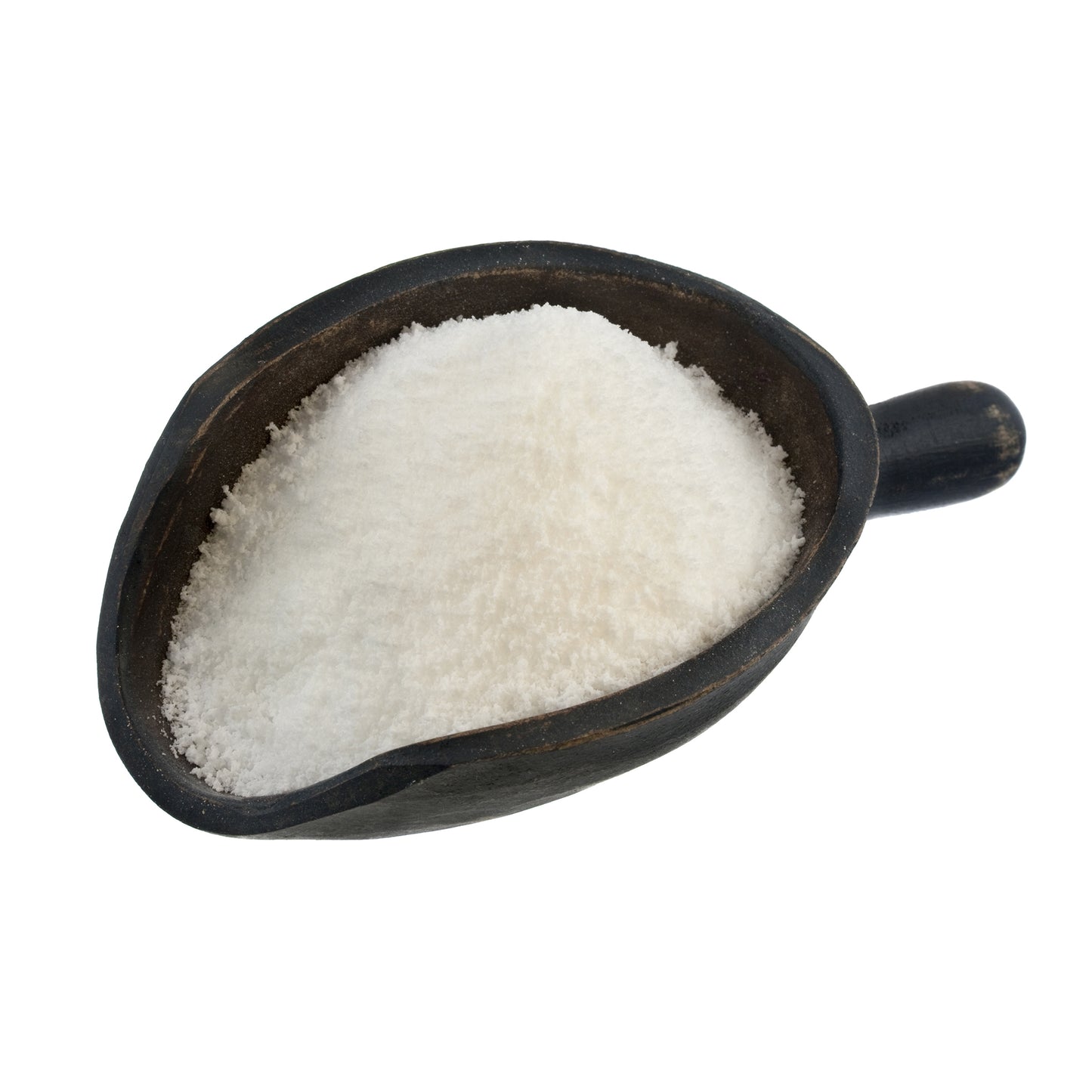
What is Benzoic Acid?
A colorless, crystalline solid, Benzoic Acid is a chemical compound that appears in almost all plants and animals. Nostradamus is allegedly the first person to have described Benzoic Acid, and it was said to be discovered in the 16th century. It is an incredibly commonly used chemical today.
It is a fungistatic compound most commonly used as a preservative in food as well as industrial products. In fact, Benzoic Acid was the first chemical preservative approved for use in the US. Benzoic Acid is soluble in water, alcohol, acetone, carbon tetrachloride and benzene.
How is Benzoic Acid Made?
Benzoic Acid is both naturally and synthetically occuring. In nature, it is found in food like berries, prunes, cinnamon, cloves, mushrooms, and even some dairy products. Synthetically, it is produced through hydrolysis, and can be derived from benzaldehyde, benzyl alcohol, and benzyl chloride. Because there are so many production options, Benzoic Acid is relatively inexpensive and readily available, making it an ideal compound for a variety of preservation needs.
Benefits & Uses of Benzoic Acid
Benzoic Acid can be used in a diversity of ways, due to its anti-fungal and preservative properties. Many of the uses of Benzoic Acid are industrial, however there is a wide realm of application for the product:
-
Medical
Because Benzoic Acid has antifungal properties, it makes for an important ingredient in antifungal creams and ointments, such as the treatment of ringworm and athlete’s foot. Some have even cited that Benzoic Acid can be used in the treatment of gout. It can also be used in topical antiseptics and hospital-grade antibiotic, antimicrobial, and antifungal cleaning products. -
Cosmetic
Benzoic Acid is one of the components of many toothpastes and mouthwashes. It is also used in medicated face wash and creams. With makeup products like lipstick, Benzoic Acid helps to stabilize and maintain the pH of the product. In addition to being a pH buffer and preservative, Benzoic Acid functions as an emollient in products like shampoo, hairsprays, lotion, foundation, sunscreen, and soaps, nail products, detergents, and even baby products. In acne creams and treatments, Benzoic Acid is used to help absorb excess oil, unclog pores, and slough off dead skin cells. Benzoic Acid also has been shown to reduce inflammation of the skin, which reduces risk of infection. -
Food
Benzoic Acid functions as an antimicrobial preservative for foods and beverages, which extends their shelf life by keeping unnecessary yeast and mold at bay. Typically, Benzoic Acid is commonly used with acidic foods and carbonated beverages, such as pickles, barbeque sauce, chewing gum, sweets, ice cream, jams, jellies, maraschino cherries, cheeses and margarine. More recently, Benzoic Acid has been used with raw meat and seafood to preserve and extend the shelf life. -
Paint/Coating
Within the area of painting and coating, Benzoic Acid works as a preservative and also gives the paint a hardness and increased gloss appearance. -
Industrial
Benzoic Acid is also an ingredient in some dyes, plastics, and insect repellants. -
Hobby
Benzoic Acid is used to simulate snow in glass snow globes. -
Household
Benzoic Acid is used in certain household cleaners, such as pet stain remover. -
Laboratory
Benzoic Acid can be used within the laboratory for experiments and equipment calibration.
Dosage, Safety & Side Effects
When used in proper amounts, Benzoic Acid is considered safe for topical use and ingestion. It is also considered low risk for an allergic reaction, especially in regards to cosmetics. When ingested, it is absorbed by the stomach lining, converted, and passed through the body as urine. While small amounts are safe, working with large quantities of the raw chemical should be done with care. Those with liver disease or sensitivity to aspirin should exercise caution with Benzoic Acid and may develop a reaction. Reaction to Benzoic Acid on the skin may result in a burning sensation.
Pregnant and breastfeeding women should avoid contact with Benzoic Acid, as should children under the age of 18.
Benzoic Acid has been found to not likely cause cancer. The Federal Drug Administration (FDA) has found Benzoic Acid to be generally safe for use as a food additive.

